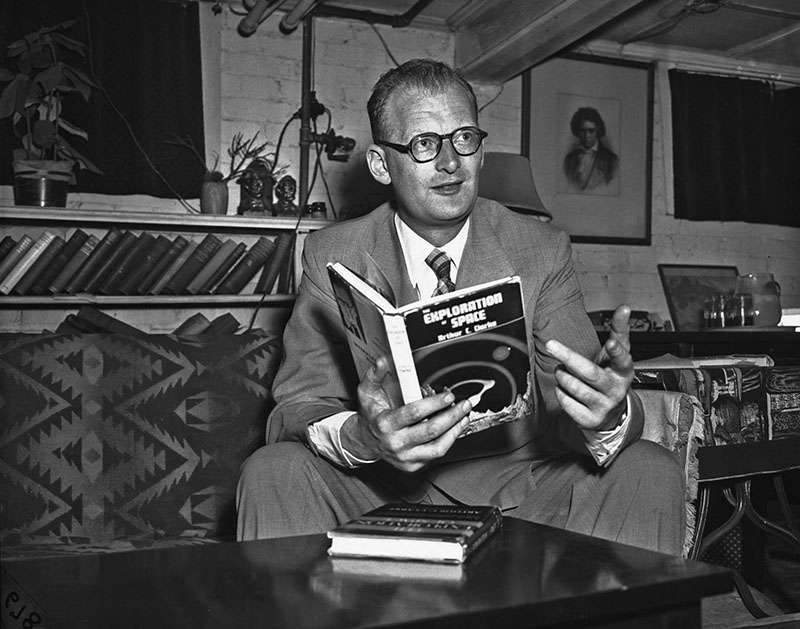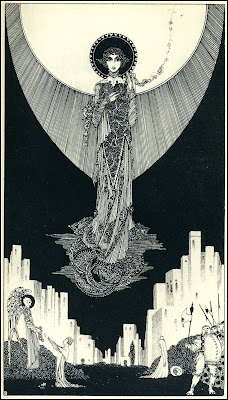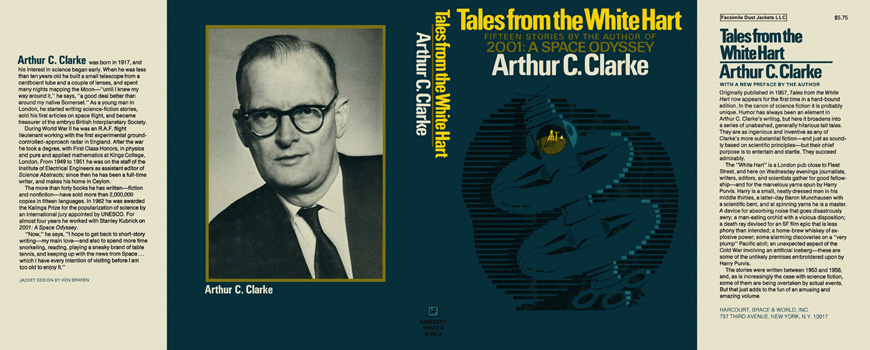
There is a huge black wall across the world, made of some alien substance. ‘The Wall of Darkness’ is set on another planet, or perhaps our planet in the far future. ‘The Other Side of the Sky’ is a series of connected short stories about the ups and downs of life in orbit above the Earth, particularly looking at how communications have been transformed by satellites (published in the year that Sputnik 1 launched, the first artificial satellite). HRH Prince Henry really wants to go into space and live a little but everyone thinks he’s too precious. ‘Refugee’ discusses monarchy and the differences between Americans and the British. ‘The Nine Billion Names of God’ is one of Clarke’s most famous stories, in which monks use a computer to calculate all possible combinations of letters, after which God’s purpose will be revealed.

The focus is on the narration and the ideas. There aren’t many scientific explanations in them either, unlike his later novels. What’s also fantastic about these stories is how prescient and realistic they are, considering that they were written between 1947-57, well before the first human was launched into space.

Some of them are humorous, some of them sad, but all have a twist in the tale. Every story is worth reading multiple times.

One of my favourite short story collections, this well-thumbed Corgi edition from 1963 has the lyrical sense of wonder that characterises the best classic science fiction.


 0 kommentar(er)
0 kommentar(er)
